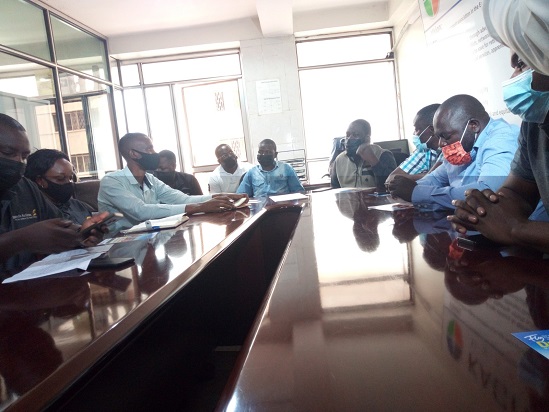NSSF Deputy Managing Director Patrick Ayota
The National Social Security Fund (NSSF) has won a landmark Shs42.5bn tax dispute against the Uganda Revenue Authority (URA) on whether the interest rate the Fund pays to its members every Financial Year is a deductible expense for income tax purposes.
The dispute arose out of a decision by URA in November 2013, to subject the interest paid to NSSF members to tax. This was however departure from URA’s own earlier position contained in a November 1, 2011 letter to the Fund advising that the interest paid to members is allowed as a deduction.
The Fund then filed a suit in the High Court of Uganda (Commercial Division) vide Civil Suit No. 366 of 2014 challenging URA’s decision, which suit was referred to the Tax Appeals Tribunal.
In a ruling delivered on November 02, 2020, Justice Boniface Wamala of the Commercial Division of the High Court set aside an earlier contrary decision of the Tax Appeals Tribunal.
“The appeal wholly succeeds. I accordingly set aside the Ruling and Orders of the Tax Appeals Tribunal and substitute them with the decision that the interest paid by the Appellant (Fund) to its members is declared a deductible expense for income tax purposes,” Justice Wamala ruled.
He also ruled that the Fund is not liable to pay the principal tax assessed of Shs30.5 Billion and is also not liable to pay the penal tax or interest of Shs12 Billion.
NSSF Deputy Managing Director Patrick Ayota welcomed the court’s decision, calling it a victory not only for the workers who save with the Fund but the retirement benefits sector as well.
“The court’s ruling will most likely spur growth in the sector because Ugandans have an incentive to save more given that the interest paid every financial year will not be subject to tax. We were confident that appealing the decision of the Tax Appeals Tribunal was in the best interest of the Fund’s savers and we have been vindicated. I would like to salute the Fund’s internal and external lawyers for a job well done,” he said.
The tax dispute centered around whether the contributions made to the Fund “create a debt obligation as per the Income Tax Act, making interest paid to members a deductible expense.
It was in addition about whether interest is a payment of an expense of income of capital nature and whether the annual interest paid by the NSSF to its members was not incurred in the production of income included in the gross income.”
Court agreed with the Fund on the key issues that the Fund has an obligation to pay back contributions plus interest to its members when they qualify and that payment to its members in form of benefits is an expense of income.
It also agreed with the Fund on the resultant issues and held that the Fund is not liable to pay Shs42.5 Billion principal and penal tax as had been assessed by the URA.

Ayota said that Uganda needs a legal regime that rewards rather than punish people who save for the long term.
“The decision by court, in the grand scheme of the savings debate, points to where the country’s law makers should focus. The existing legal regime does not provide adequate incentives, yet we need progressive laws that encourage long term savings. Our law makers therefore need to reform the tax regime so that it can encourage mobilization of domestic savings for economic development,” he added.





